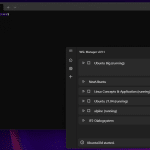How to innovate faster with API management: Why API utilization must improve to meet transformation demands

There is an urgent need to make application programming interfaces (APIs) efficient and utilized more effectively. This need is being driven by the rapidly increased rate of digitization that customers and business lines are demanding from CIOs and CTOs. APIs are a powerful tool that can be employed to deliver competitive advantage and market differentiation, the two biggest demands being placed on the technology team.
The Covid-19 pandemic has accelerated the digitization of society and, therefore, vertical markets. In order to remain competitive, organizations have increased the pace at which they are digitizing their business processes, which had begun prior to 2020 but sped up significantly in response to the pandemic. Management consultancy McKinsey reports that businesses with high-performance technology teams have achieved market differentiation. Technology in these organizations creates revenue and allows the business to adapt to market changes. Three-quarters of organizations with high-performance technology teams told McKinsey that digital transformation projects had achieved cost reduction and improvements in the employee experience and two-thirds of surveyed businesses had increased revenue from existing channels; half had created new revenue streams -- typically digital channels.
Banks choose to build their own tech solutions

While banks are investing in technology solutions to meet increasing demands, a new study shows that 61 percent prefer to build their own technology stack, rather than buy technology solutions from a third party.
The study from IT services company NTT DATA surveyed 900 senior banking respondents across 12 countries and examines the state of corporate banking following the COVID-19 pandemic.
Successful AI deployment needs to be enterprise wide

Businesses are keen to capitalize on AI, with 72 percent of business leaders in a new survey believing their competitors are using AI, and 63 percent concerned their competitors will use AI to gain an advantage over their own business.
But the study from SambaNova Systems, of over 2100 enterprise and IT leaders based in the US, UK, and Germany, shows just 18 percent of organizations with AI are rolling it out as a large-scale enterprise-class initiative. The majority -- 82 percent -- are rolling it out as multiple programs, creating disorganization and hindering successful deployment.
Best Windows apps this week

Five-hundred in a series. Welcome to this week's overview of the best apps, games and extensions released for Windows 10 and 11 on the Microsoft Store and elsewhere in the past seven days.
Microsoft changed its policy regarding the sale of open source programs on the company's store this week. Developers of open source applications may sell their products on the Store (again).
Facebook is finally restoring the chronological feed

Facebook's love of algorithms has meant that there has been a highly polarizing focus on recommended content in users' feeds rather than posts from friends, family and pages of genuine interest. But this is changing.
In a move that will please millions of Facebook users who have become increasingly frustrated with the way recommended content is pushed into their feed, Mark Zuckerberg has announced that iOS and Android users are being treated to feed split over two tabs. While one of these will remain populated with content surfaced by Facebook's "discovery engine", the other is a chronological feed of content from friends, groups and Pages.
Do we need a cyber NATO to address the changing threat landscape? [Q&A]

The threat landscape facing enterprises is changing constantly. In recent months, major vulnerabilities like Log4j and malware-based threats have demonstrated the need for organizations to move quickly in order to defend themselves.
Is the best way to stay on top of the most pressing threats to harness the power of the global cybersecurity community for defense in a sort of cyber NATO? We talked to SOC Prime CEO Andrii Bezverkhyi to find out.
Microsoft releases KB5015882 update for Windows 11 with new upgrade options, Explorer crash fixes, and more

It is the time of the month when Microsoft unleashes its C release updates on eager Windows users. As such, the company has released a preview of the KB5015882 update for Windows 11, bringing a number of important changes and bug fixes.
Although this is a non-security update, KB5015882 remains significant for a number of reasons. Not only does it address an issue that caused explorer.exe to hang, but it also introduces new upgrade options and makes changes to focus assist.
Microsoft updates Windows 11 to block RDP and other brute force attacks by default

Microsoft has introduced a change to Windows 11 that makes it much harder to use brute force attacks to crack passwords. Starting with the latest Insider builds, there is a new account lockout policy in place by default.
The policy means that should an incorrect password be entered 10 times, the account will be locked for 10 minutes. While this does not make brute forcing impossible, by any means, it makes it much harder and more time consuming, boosting security in an important area.
StarTech.com launches laptop backpack for commuters, travelers, and IT professionals

The COVID-19 pandemic really turned the world upside-down, effectively killing work travel and relegating workers to their own homes. Yes, remote work has reigned supreme for a few years now, but finally, many of us are returning to the office and resuming business travel. Whether or not this is a good thing is debatable, but it is what it is, folks.
Road warriors know just how essential a quality laptop backpack is, not only for holding the actual computer, but for accessories, documents, devices, and yes, even snacks! And now, StarTech.com has begun selling its first-ever backpack designed for on-the-go professionals. Available in two sizes to accommodate either 15.6-inch or 17.3-inch laptops, the backpack features an ingenious removable travel accessories pouch to help keep you organized. And yes, the backpack has a water-bottle pocket on the side.
Honor among cyber thieves, the professional side of the dark web

Much like the legitimate eCommerce world, trust and reputation have become essential parts of the cybercriminal trade. New research by HP Wolf Security finds 77 percent of cybercriminal marketplaces analyzed require a vendor bond -- a license to sell -- which can cost up to $3,000.
In other evidence of a professional approach, 85 percent of these sites use escrow payments, and 92 percent have a third-party dispute resolution service. Every marketplace provides vendor feedback scores too. Cybercriminals also try to stay a step ahead of law enforcement by transferring reputations between websites -- as the average lifespan of a dark net website is only 55 days.
The three AI technologies powering checkout-free retail

Checkout-free shopping is revolutionizing the retail space, cutting down on time wasted in line and improving customer experience while shopping. Though the idea of checkout-free technology powering your shopping trips may seem like a far-off technology, it actually utilizes three established technological components that work together to provide a smooth and frictionless shopping experience.
Each of these technologies, deep learning, sensor fusion, and computer vision, work synergistically to make futuristic-seeming technology part of our everyday lives.
RPA is not a silver bullet: Why no-code holds the key to digital transformation success

If the UK’s businesses didn’t need to modernize before the pandemic, they certainly do now. The existential crisis many were plunged into over the past two years has reinforced the resolve of boardrooms everywhere that digital transformation is the future. When deployed effectively, it helps to deliver the agility that every business craves, whilst driving the operational efficiencies and productivity gains essential to survival in a period of high inflation and rising costs.
In this context, robotic process automation (RPA) can be a useful tool. But when deployed the wrong way, or in isolation, it may actually end up worsening legacy dependencies rather than alleviating them. Instead, organizations need to think about the bigger picture -- by bringing together apps, automation and extensible integration in a single no-code platform. That’s the best way to achieve modernization at a pace that fits the business.
If you have KB5015888 installed, you can take part in Microsoft's 'special' Windows 11 Bug Bash

Microsoft frequently runs bug bashes to help weed out problems with Windows 11. These often focus on particular areas of the operating system and the company has just announced a "a special Bug Bash" to coincide with the release of the latest beta build.
Just a couple of days ago, Microsoft released Windows 11 Insider Preview Build 22622.436 (KB5015888) to the Beta Channel. Now the Bug Bash is underway, running until July 25, with beta testers being asked to complete various quests and provide feedback.
New process helps deliver Kubernetes observability

As Kubernetes becomes increasingly widely adopted, monitoring these systems effectively becomes even more critical for businesses. But because Kubernetes is by nature ephemeral -- things can be created and destroyed quickly -- this represents a challenge.
As a Gartner report last year pointed out poor or manual monitoring procedures can introduce friction for developers and loss of visibility. To combat this problem, analytics platform Sumo Logic has unveiled a new process to deliver Kubernetes observability in just a few clicks.
The evolution of identity-based fraud: Why ATO attacks are at the top of the list

Digital identity is the new currency, and adversaries are chasing wealth. Research shows that 61 percent of data breaches are the result of compromised credentials. This is a common fraudster tactic, whereby using legitimate credentials allows them to avoid detection as they gather intelligence and stolen data that will allow them to undertake further fraudulent transactions.
Fundamental to the defense of systems is access control, but it has its limits. Attackers are continuously trying to circumnavigate these systems to access accounts, with login and payment flows frequently targeted. This is why many organizations have invested in anti-fraud technologies to detect and mitigate against such attacks.
Most Commented Stories
© 1998-2024 BetaNews, Inc. All Rights Reserved. Privacy Policy - Cookie Policy.




